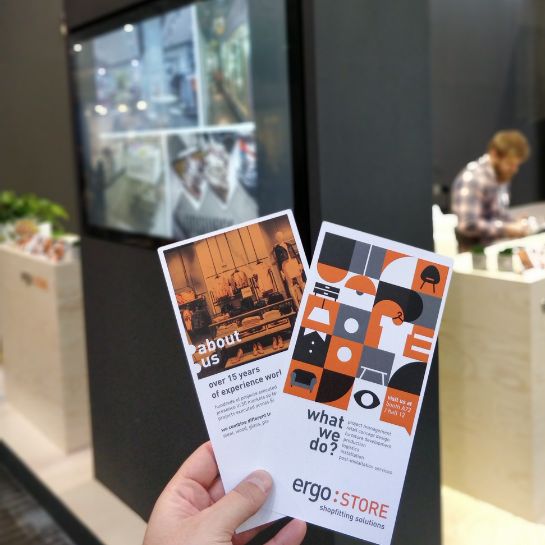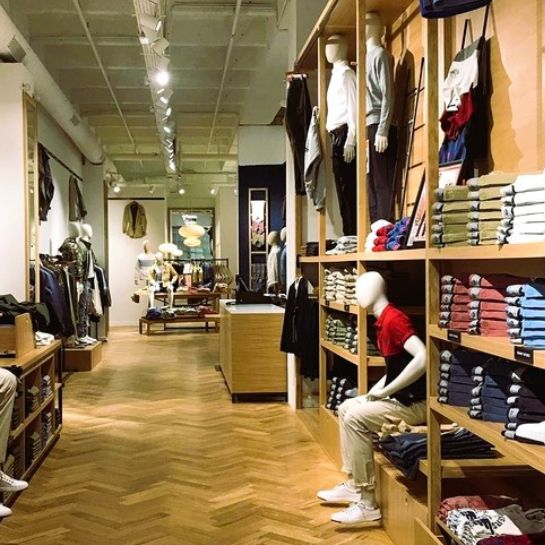27.03.2025
Modern and interactive spaces that simultaneously highlight the brand’s long history. Read about the solutions implemented in Levi’s shops interiors — a brand for which Ergo Store has designed and built stores in many European countries over the years.
Levi’s was founded in 1853 in San Francisco, initially as a haberdashery store. The first jeans were patented in 1873. In the 1950s, Levi’s expanded into Europe, and in the 1990s, the first stores were opened in Poland.
In 1992, Levi’s launched a factory in Płock, which became a key production hub for the brand in Europe. Although the factory closed in 2024, the retail network in Poland remains active.
Our company has repeatedly designed and built Levi’s stores across Poland. Our portfolio includes locations such as Galeria Mokotów in Warsaw, Galeria Forum in Gdańsk, and Młociny in Warsaw.
We have also worked on Levi’s stores in other European countries, including Germany, Denmark, the Netherlands, Spain, Italy, the Czech Republic, Romania, Hungary, Ukraine, Georgia, Croatia, Serbia, Greece, and Albania. Among our projects is the largest Levi’s store in Central and Eastern Europe, as well as a premium-concept store in Milan.
Like most fashion brands, Levi’s has adapted its store interiors to changing trends, focusing on enhancing customer comfort and incorporating modern materials and technologies.
Today’s Levi’s stores are designed with contemporary interior concepts while drawing inspiration from past solutions and products, reinforcing the brand’s heritage. For example, customers visiting the Levi’s store we prepared in Prague – the largest in Central and Eastern Europe – can explore a dedicated space showcasing selected denim models dating back to 1937.
Levi’s is also placing greater emphasis on sustainability in its store designs. The brand uses environmentally friendly materials, such as wood from certified sources and minimizes energy consumption with efficient lighting systems.
Recycling is another priority for Levi’s. In the aforementioned Prague store, seating upholstery is made from fabric scraps and other leftover materials from regular production.
Additionally, Levi’s is integrating digital technology into its stores, including interactive displays and mobile apps that allow customers to personalize their purchases and access real-time product information.
Customization stations, such as the Levi’s Tailor Shop, have also become a staple in stores. In the Prague store, a master tailor assists customers in modifying and personalizing their jeans, whether they are brand-new or well-worn favorites.
Levi’s is a brand with a rich history that seamlessly blends tradition with modern solutions in its retail spaces. Today’s Levi’s stores stand out with eco-friendly materials, interactive technology, and customization zones, offering customers a unique shopping experience. Ergo Store has had the privilege of executing projects for Levi’s across Europe, helping to create modern, functional, and cohesive retail environments.

19.02.2026
This article outlines Ergo Store’s presence at industry events in recent years and previews the most significant fairs scheduled for 2026 and early 2027.

12.02.2026
Dockers is one of the global apparel brands that Ergo Store has supported for years, delivering brick-and-mortar retail spaces across various parts of Europe. What are the most distinctive features of the brand’s store concept, which until 2025 was part of Levi Strauss & Co.?